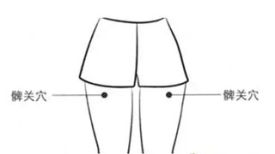
Strong lung qi leads to strong immunity! Today, I recommend four kinds of traditional Chinese patent medicines and simple preparations to help nourish the lungs and improve immunity. In traditional Chinese medicine theory, the lungs are one of the important organs in the human body, responsible for regulating the movement of qi throughout the body.
The lungs play an important role in human function, with the function of defending qi being particularly crucial. Wei Qi is like the "guardian" of the human body, guarding the surface of the body, forming a strong barrier to effectively resist the invasion of harmful factors such as external viruses and evil spirits.
This concept is in line with the "immunity" of modern medicine. The health status of the lungs directly affects the human immune system. The healthier the lungs, the stronger the immune system, and the less susceptible the body is to illness. Therefore, protecting the lungs and enhancing immunity are crucial for maintaining physical health. Especially during the prevalence of infectious diseases such as influenza, lung health work is particularly important.
So, how to take care of the lungs in daily life?
Today, we share four kinds of traditional Chinese patent medicines and simple preparations, which nourish and protect the lungs from various angles and help you strengthen your immunity.
First, Yupingfeng Granule, a classic traditional Chinese patent medicines and simple preparations, is introduced. Its main ingredients include Astragalus, Atractylodes macrocephala and Saposhnikovia divaricata. It focuses on supplementing lung qi, enhancing lung function, and thus enhancing overall immunity. People with lung qi deficiency often feel difficulty breathing, chest tightness like pressure stones, and difficulty breathing deeply. During activities, it is more prone to panting, as if there is insufficient oxygen in the body. In addition, they often feel physically exhausted, do not like to speak, have low voices, and lack vitality.
In addition, they are also prone to sweating profusely, even in non hot environments. This situation not only causes discomfort, but may also lead to excessive depletion of the body's yang energy, further weakening the immune system. Therefore, this type of population is often prone to catching colds and has a slower recovery rate. In response to these symptoms, Yupingfeng granules can effectively promote the absorption and utilization of oxygen by supplementing lung qi and enhancing lung function, thereby reducing discomfort symptoms such as chest tightness and shortness of breath.
Feining Granule is a traditional Chinese patent medicines and simple preparations, whose main effect is to clear away heat and phlegm, relieve cough and asthma. In traditional Chinese medicine theory, lung heat is often the fundamental cause of symptoms such as cough and excessive phlegm. Feining granules address this issue through their excellent heat clearing effect. Lung heat is usually caused by external wind heat or excessive internal fire, manifested as rough cough sound, yellow and viscous sputum, and other symptoms. Its ingredients can penetrate deep into the lungs, eliminate heat pathogens, and restore a cool state to the lungs.
Secondly, Feining granules have an expectorant effect. Pulmonary inflammation often accompanies symptoms of excessive sputum, and the expectorant components in Feining granules can effectively decompose sputum, making it thin and easy to cough. This helps patients to clear phlegm more easily, reducing the feeling of chest tightness and difficulty breathing.
The third type is Maiwei Dihuang Wan, which is particularly suitable for people with lung and kidney yin deficiency. The manifestation of lung kidney yin deficiency is not only characterized by symptoms such as shortness of breath, chest tightness, and susceptibility to colds, but may also be accompanied by dry mouth, dizziness, tinnitus, soreness in the waist and legs, as well as weak sweating at night. Especially dry mouth, which is one of the obvious manifestations of lung and kidney yin deficiency.
Due to insufficient lung and kidney yin fluid, the secretion of body fluid in the oral cavity decreases, causing patients to often feel dry mouth and tongue, and sometimes even dry throat and pain. Maiwei Dihuang Wan mainly has the effects of nourishing kidney yin, moistening the lungs, and relieving cough. By supplementing the yin fluid of the lungs and kidneys, it can alleviate the above symptoms.
The fourth type is the Gejie Dingchuan Pill, designed specifically for those who experience symptoms such as fatigue, coughing and wheezing, shortness of breath, and irritability due to insufficient lung qi and inability to absorb qi in the kidneys. In traditional Chinese medicine theory, the lungs are responsible for qi, regulating respiration, and the kidneys are responsible for absorbing qi, which is the root of qi. When lung qi is insufficient and the kidneys are unable to absorb air, respiratory function is affected, resulting in symptoms such as coughing, wheezing, and shortness of breath.
Gejie Dingchuan Wan uses a variety of precious medicinal herbs, among which Gejie has the effects of tonifying the lungs, tonifying the kidneys, absorbing qi and calming asthma, improving lung qi deficiency and kidney failure to absorb qi. Other medicinal herbs such as ginseng and astragalus can help supplement lung qi and improve lung function; Schisandra chinensis and Ophiopogon japonicus can nourish lung yin and alleviate symptoms of restlessness and heat.
However, when using these traditional Chinese patent medicines and simple preparations, reasonable medication arrangements should be made according to the specific symptoms and physical conditions of patients.


